
By interacting with chatbots in innovative ways that encourage examining issues from different perspctives, we can sharpen our critical thinking skills. | David Gurteen Continue reading Leveraging Chatbots to Aid Critical Thinking Skills David Gurteen

Freethinkers are those who are willing to use their minds without prejudice and without fearing to understand things that clash with their own customs, privileges, or beliefs. This state of mind is not common, but it is essential for critical thinking. | Leo Tolstoy Continue reading Freethinkers’ Mindset Leo Tolstoy

The goal is to use chatbots to supplement, not replace, human critical thinking and evaluation. | David Gurteen Continue reading Chatbots Should Supplement Not Replace Human Critical Thinking David Gurteen

Do not indoctrinate your children. Teach them how to think for themselves, how to evaluate evidence, and how to disagree with you. | Richard Dawkins Continue reading Teaching Critical Thinking Richard Dawkins

While immensely capable, chatbots have significant limitations compared to human cognition. They lack nuanced communication skills, grounded world knowledge, critical thinking, and sound judgment. Credit: David Gurteen Source: Limitations of ChatbotsPosts where this quotation is embedded Limitations of Chatbots Chatbots lack true intelligence, understanding, and reasoning abilitiesPeople: David GurteenDavid Gurteen Keynote speaker, writer and conversational facilitatorBooks: … Continue reading Chatbots Lack Nuanced Communication Skills David Gurteen

Posts where this video is embedded Dan Kahan Professor of Psychology at Yale Law School How Beliefs Shape Reasoning How political views influence the way we interpret dataPeople: Dan KahanDan Kahan Professor of Psychology at Yale Law SchoolPosts: Dan KahanHow Beliefs Shape Reasoning How political views influence the way we interpret dataOur Tribal Nature The human brain … Continue reading Are Smart People Ruining Democracy? Dan Kahan (2018)

This is a pre-recorded video of a talk titled “Chatbots as Critical Thinking Partners” that I presented at the AI Challenges & Adaptations Conference hosted by the Bibliotheca Alexandrina on Tuesday, December 3, 2024. You can find the ideas behind my talk in the chapter of my blook, Chatbots as Critical Thinking Partners. Posts where … Continue reading Chatbots as Critical Thinking Partners – Talk for Bibliotheca Alexandrina David Gurteen (2024)

Teaching critical thinking alone is not a solution to helping people question their beliefs, it simply helps them to better post rationalize their beliefs. Credit: David Gurteen People: David GurteenDavid Gurteen Keynote speaker, writer and conversational facilitatorBooks: David GurteenA Conversation Architect Designs Strategic Conversations David GurteenAPM Conference: Conversational Leadership David Gurteen (2016)Being Truthful Versus Telling … Continue reading Teaching Critical Thinking Alone Is Not a Solution to Helping People Question Their Beliefs David Gurteen

This talk by Peter Boghossian at The Ramsay Centre for Western Civilisation explores the applicability and significance of the Socratic method in fostering critical thinking and advancing civilization. Peter begins by highlighting his interest in finding simple, conceptual “bales of hay” to clean up cognitive processes, inspired by a childhood lesson from his father on … Continue reading The Socratic Method in the Western Tradition Peter Boghossian (2023)

Close Pop-up All Episodes This is the source material used to create this podcast. Posts where this video is embedded Chatbots as Critical Thinking Partners Stimulating critical thinking is one of the most powerful application of chatbotsTags: chatbot (24) | critical thinking (49) | NotebookLM (6) | podcast (20)Google Web Search Photo Credits: Midjourney ()This page is … Continue reading Chatbots as Critical Thinking Partners Podcast generated by NotebookLM

We are drowning in information, while starving for wisdom. The world henceforth will be run by synthesizers, people able to put together the right information at the right time, think critically about it, and make important choices wisely. | E. O. Wilson Continue reading We Are Drowning in Information, While Starving for Wisdom E. O. Wilson

Please stop saying you researched it. You didn’t research anything and it is highly probable you don’t know how to do so. Did you compile a literature review and write abstracts on each article? Or better yet, did you collect a random sample of sources and perform independent probability statistics on the reported results? No? … Continue reading Please Stop Saying You Researched It Linda Gamble Spadaro

In this book, Red Teaming, Bryce Hoffman shows how the most innovative and disruptive companies, such as Google and Toyota, employ Red Teaming techniques. A red team is a team that is formed with the objective of subjecting an organization’s plans, programmes, ideas, and assumptions to rigorous analysis and challenge. He also shows how many … Continue reading Red Teaming: How Your Business Can Conquer the Competition by Challenging Everything by Bryce G. Hoffman (2017)

Perhaps the essence of the Liberal outlook could be summed up in a new decalogue, not intended to replace the old one but only to supplement it. The Ten Commandments that, as a teacher, I should wish to promulgate, might be set forth as follows: Do not feel absolutely certain of anything. Do not think it worthwhile to produce belief by concealing … | Bertrand Russell Continue reading Bertrand Russell’s Ten Commandments for Critical Thinking Bertrand Russell

Thinking — or reasoning — involves objectively connecting present beliefs with evidence in order to believe something else. Credit: David T. Moore Comment: True reasoning requires a willingness to adjust our beliefs when faced with compelling evidence, a critical skill in both decision-making and leadership.Books: David T. MooreConnecting Beliefs and Evidence David T. MooreQuotations: David … Continue reading Connecting Beliefs and Evidence David T. Moore

People can be extremely intelligent, have taken a critical thinking course and know logic inside and out. Yet they may just become clever debaters, not critical thinkers, because they are unwilling to look at their own biases. | Carol Wade Continue reading Biases and Critical Thinking Carol Wade

It is lacking in critical thinking to think that studying philosophy will improve your critical thinking. | Nassim Nicholas Taleb Continue reading Philosophy and Critical Thinking Nassim Nicholas Taleb

People want you to think critically until you actually do it. | Chris Meyer Continue reading Critical Thinking Paradox Chris Meyer
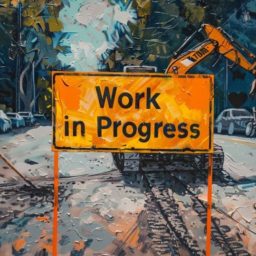
The Fable of the Bees Writing with AI Isn’t Necessarily Cheating Close Pop-up all posts in this chapter What’s the Vibe? Please be patient as this may take up to a minute to load… Close Only Me Continue reading Critical Thinking How to challenge your own assumptions

The Fallibility of Science The Scientific Method for Everyday Life Close Pop-up all posts in this chapter What’s the Vibe? Please be patient as this may take up to a minute to load… Close The scientific method has evolved to solve problems through rigorous inquiry. Facing global issues requires clear, evidence-based approaches. Historical insights into … Continue reading The Roots of the Scientific Method Exploring the history of the scientific method

Recognising New Age Mumbo Jumbo The History of the Socratic Method Close Pop-up all posts in this chapter What’s the Vibe? Please be patient as this may take up to a minute to load… Close The Socratic method uses dialogue to stimulate critical thinking and challenge assumptions, aligning closely with the principles of Conversational Leadership. … Continue reading The Socratic Method A powerful tool for critical thinking

The Socratic Elenchus The Two Pillars of Truth Close Pop-up all posts in this chapter What’s the Vibe? Please be patient as this may take up to a minute to load… Close Conversational Leadership emphasizes the importance of intellectual humility and open-mindedness in discussions. Polarization and confirmation bias can stifle productive conversations on complex issues. … Continue reading How Could We Be Wrong? Is a crucial question to ask in a conversation

[InsertPanel style="importance"] Today, we face numerous challenges that require thoughtful dialogue and innovative solutions. Engaging in meaningful conversations allows us to exchange ideas, question assumptions, and collaboratively address pressing issues. This is where the concept of a “conversible world” becomes relevant. By cultivating our ability to participate in meaningful discussions, … Continue reading The Conversible World ** The sphere of human interaction and exchange of ideas

The Difference Between Sense-making and Meaning-making What Are Beliefs? Close Pop-up all posts in this chapter What’s the Vibe? Please be patient as this may take up to a minute to load… Close If we are to create a better world, we need to make better sense of things and improve the decisions we make, … Continue reading Introduction: Knowledge Delusion We delude ourselves about what we know and how we make decisions

Limitations of Chatbots Why Chatbots Can’t Have Real Human Conversations Close Pop-up all posts in this chapter What’s the Vibe? Please be patient as this may take up to a minute to load… Close Like us humans, chatbots are imperfect and prone to errors, biases, and lapses in logic. Rather than downplaying them because of … Continue reading Embracing the Imperfections of Chatbots Cultivating critical thinking in the age of AI

Why Chatbots Can’t Have Real Human Conversations Chatbots and Genai in Knowledge Management Close Pop-up all posts in this chapter What’s the Vibe? Please be patient as this may take up to a minute to load… Close Chatbots are extremely powerful and multifaceted AI tools with many possible uses. While it is not necessary to … Continue reading Uses of Chatbots Practical applications of conversational AI

Chatbots and Genai in Knowledge Management From Mind to Information – the Role of AI in Knowledge Encoding Close Pop-up all posts in this chapter What’s the Vibe? Please be patient as this may take up to a minute to load… Close As AI increasingly shapes our world, we need to consider its effect on … Continue reading Artificial Intelligence and the Quest for Knowledge Exploring the parallels between Plato’s Phaedrus and the challenges of GenAI

Chatbots to Analyze Conversations and Presentations Evaluate Sources and Evidence Close Pop-up all posts in this chapter What’s the Vibe? Please be patient as this may take up to a minute to load… Close The world faces many intricate challenges that require critical thinking and nuanced analysis. If used creatively, chatbots like ChatGPT, Claude, and … Continue reading Chatbots as Critical Thinking Partners Stimulating critical thinking is one of the most powerful application of chatbots
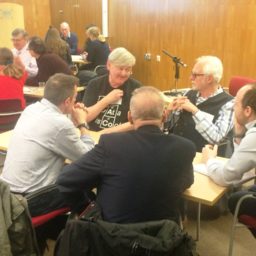
Open Mindedness ** Active Listening ** Close Pop-up all posts in this chapter What’s the Vibe? Please be patient as this may take up to a minute to load… Close Critical thinking objectively analyzes, evaluates, and synthesizes information to form a reasoned judgment or decision. It involves using logic and reasoning to examine assumptions, arguments, … Continue reading Critical Thinking ** Analyzing information and arguments to make sound judgments and decisions
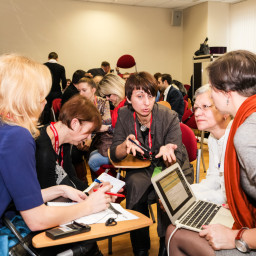
Conversations and the Adjacent Possible Levels of Conversation ** Close Pop-up all posts in this chapter What’s the Vibe? Please be patient as this may take up to a minute to load… Close To have a productive conversation, participants must possess several conversational capacities. In two articles, Conversation and Silence, Part One, and Conversations That Matter: What … Continue reading Conversational Capacities Prerequisites to a good conversation

How Could We Be Wrong? Conclusion: Two Pillars of Truth Close Pop-up all posts in this chapter What’s the Vibe? Please be patient as this may take up to a minute to load… Close The pursuit of truth is a fundamental human endeavor. However, arriving at the truth can be challenging, as our beliefs and … Continue reading The Two Pillars of Truth How the scientific method and Socratic elenchus underpin civilization

The Two Pillars of Truth Introduction: Two Pillars of Truth Close Pop-up all posts in this chapter What’s the Vibe? Please be patient as this may take up to a minute to load… Close We need to recognize that the pursuit of truth and the application of rigorous critical thinking are not just intellectual exercises … Continue reading Conclusion: Two Pillars of Truth Critical thinking – a civic duty

Trust & Belief Formation Our Tribal Nature Close Pop-up all posts in this chapter What’s the Vibe? Please be patient as this may take up to a minute to load… Close Many false beliefs feel convincing because they rest upon simple, appealing stories. We tend to readily accept uncomplicated narratives without verification. What drives this … Continue reading The Allure of Simple Stories We tend to readily accept uncomplicated narratives without verification

How Beliefs Shape Reasoning Discrediting People ** Close Pop-up all posts in this chapter What’s the Vibe? Please be patient as this may take up to a minute to load… Close Motivated reasoning is where we look for arguments in favor of conclusions we want to believe, regardless of the evidence. This is a primary … Continue reading Science Curiosity A desire to seek out and consume scientific information for pleasure
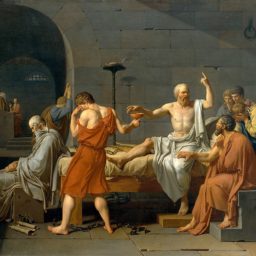
In Plato’s Phaedrus, Socrates shares the myth of Thamus and Theuth, questioning the invention of writing. Writing, he argues, weakens memory and offers the appearance of wisdom without true understanding. Socrates suggests that serious discourse using the dialectic method is a nobler pursuit, leading to genuine wisdom and happiness. Continue reading The Myth of Thamus and Theuth Does writing allow the pretense of understanding, rather than true understanding?

Oracy What Is the Difference Between Rhetoric and Oracy? Close Pop-up all posts in this chapter What’s the Vibe? Please be patient as this may take up to a minute to load… Close Rhetoric is often construed as insincere or meaningless language that sounds clever. This is an unduly negative perspective. Rhetoric is a critical … Continue reading Rediscovering Rhetoric Rethinking how we influence and communicate every day
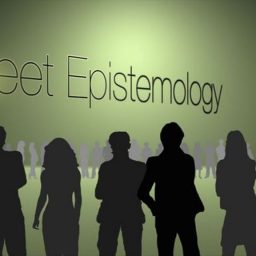
Speed-conversation Spectrum Street Epistemology Close Pop-up all posts in this chapter What’s the Vibe? Please be patient as this may take up to a minute to load… Close We all hold deeply rooted personal beliefs, many of which we have never questioned. Street Epistemology is a conversational technique based on the Socratic method, designed to … Continue reading Street Epistemology Exploring deeply held beliefs



















